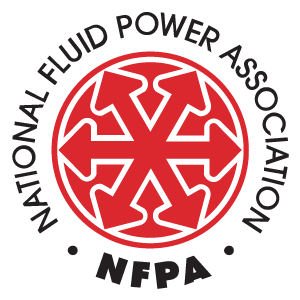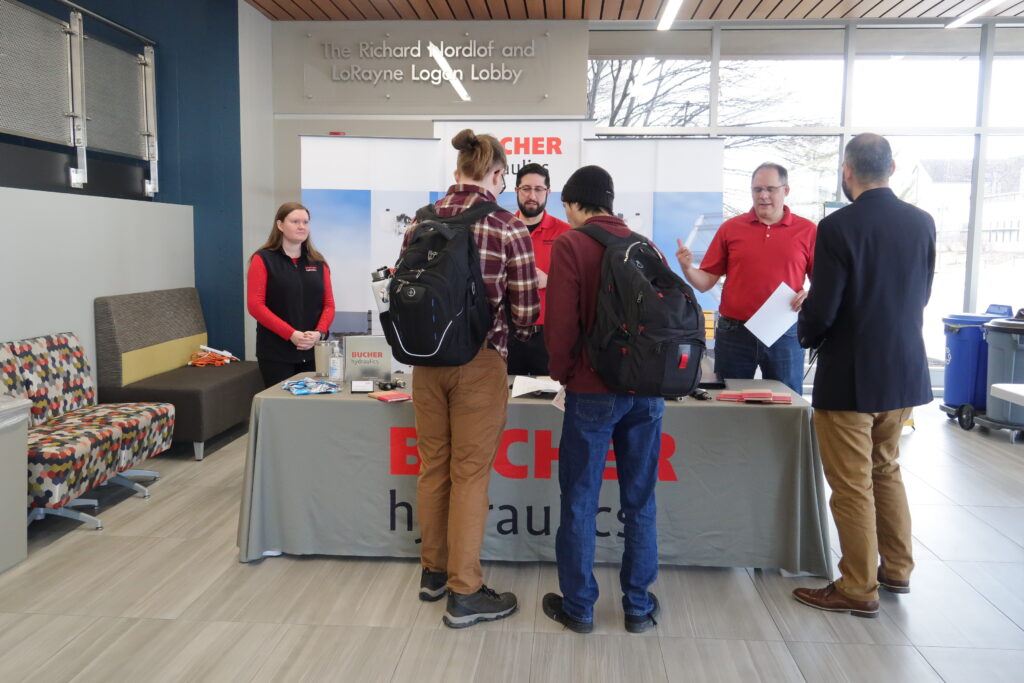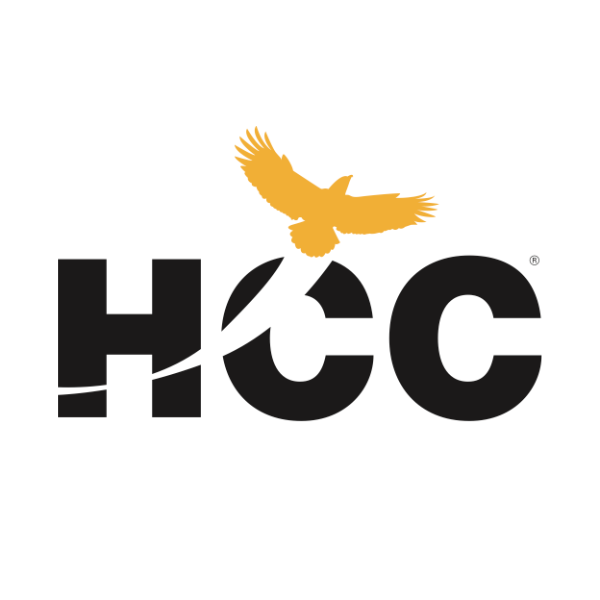Programs like the Fluid Power Scholarships are made possible in part by the generous support of industry volunteers as well as NFPA Education and Technology Foundation and Pascal Society donors. Support these efforts by making a donation.
The NFPA Education and Technology Foundation has awarded nineteen $2,000 scholarships to students pursuing fluid power technology fields of study.
Here’s one of the winners, Ben Quade. Ben is attending Iowa State University. We asked Ben about winning the scholarship for the second year…
What class(es) did you take within the last year that expanded your understanding of fluid power?
This past year I continued to expand my understanding of fluid power by taking Analysis Soil, Crop, and Machine Systems. While taking this class, I learned about farming processes at a mathematical and system level. We discussed modern tillage, seeding, baling, and harvesting practices and their relationships to power demand. Hydraulic fluid is often used to transport power to the implements from the tractor. One can calculate the power demand for the engine by factoring in losses in the tractor and system and the demand for the hydraulics on the tractor and implement.
What other experiences have you had that have taught you about fluid power?
Part of my effort to learn about fluid power has come outside the classroom at Kinze Manufacturing on a co-op. I started at Kinze in January and have already been able to expand my knowledge of fluid power. One of my first projects was figuring out how much power was needed for a blower fan on a test stand to replace the motor. The current fan was running via a hydraulic motor, so I took the motor apart during my calculations and design and learned how the hydraulic motor transfers power into the shaft. I was able to calculate the motor’s power output and properly size an electric motor while learning how the old hydraulic gear pump operates. Kinze uses a gear pump on smaller planters and a piston pump on larger planters to create system pressure. The larger demand planters work well for a piston pump due to the higher efficiency and output. The new piston pumps are larger and heavier, making it more difficult to hook up to the PTO shaft showing me how one solution often leads to another problem in the engineering world.
My roles have included reading manifold prints, assembly, and designing data collection controls for test stands. Overall, my experience at Kinze has already helped me learn more about hydraulics than I would have been able to during this semester and summer.
What are your future plans?
My co-op at Kinze has given me a unique look into hydraulics that many students do not experience. Being involved with hydraulics and seeing how versatile hydraulics can be has helped show me how valuable hydraulic knowledge is in the world. My experience drives me to pursue more hydraulics courses and gives me a strong foundation to take into the engineering discipline.
Like this post? Share it!
Recent Posts
Fall 2024 Fluid Power Recruitment Event with NIU
RSVP for our Fall 2024 Fluid Power Recruitment Event with Northern Illinois University (NIU). NIU is one of seven universities recognized as a Power Partner, teaching fluid power competencies and engaging in all NFPA educational programs. At this event, your company will have the opportunity to connect directly with NIU engineering students. Engaging in meaningful conversations,…
Now Announcing: Cuyahoga Community College as a Fast Track Hub in Ohio
NFPA’s Fast Track to Fluid Power is a workforce development pathway that partners local technical colleges with fluid power industry members and high school teachers. These networks create awareness and interest in fluid power and train students along a path that leads to careers in fluid power at NFPA member companies. We are pleased to…
Now Announcing: Houston Community College as a Fast Track Hub in Texas
NFPA’s Fast Track to Fluid Power is a workforce development pathway that partners local technical colleges with fluid power industry members and high school teachers. These networks create awareness and interest in fluid power and train students along a path that leads to careers in fluid power at NFPA member companies. We are pleased to…



